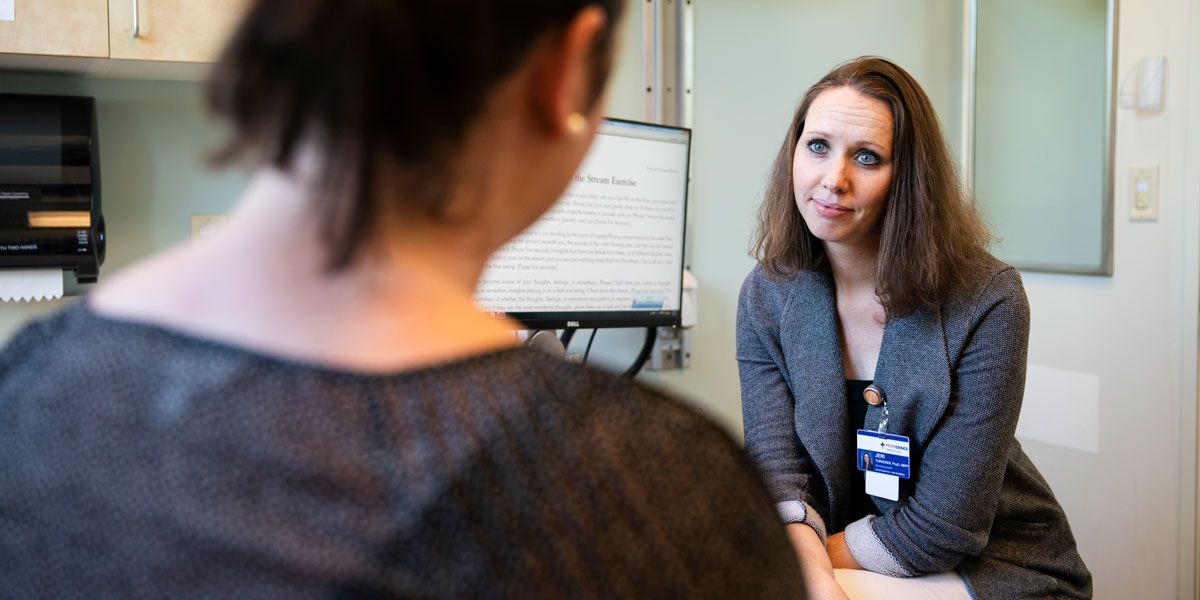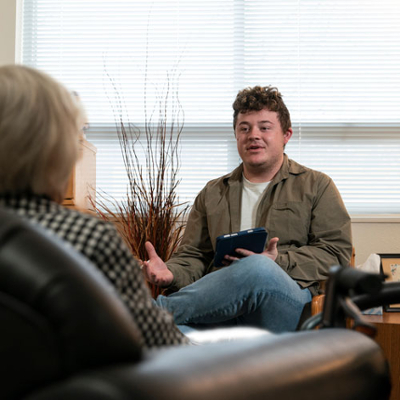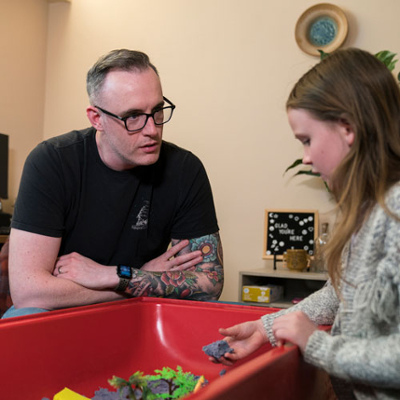
Primary Care Psychology Track
What is primary care psychology?
Primary care psychology seeks to remove barriers to access to behavioral health care by bringing the tools of the generalist psychologist into the primary care medical clinic. A primary care medical clinic “serves as the patient’s entry point into the health care system and as the continuing focal point for all needed health care services” (American Academy of Family Physicians).
A primary care psychologist is a true generalist, with duties that include:
- Warm handoffs (joining medical visits on the spot when a primary care physician thinks added behavioral health expertise would be helpful)
- Abbreviated follow-up appointments (typically three to four visits) to help set individuals on a more promising trajectory toward wellness
- Physician consults around the emotional, behavioral and social concerns of their patients
Primary care psychology is not the same as generalist outpatient psychology, as the aim is to broaden access to behavioral health care to serve everyone, not just those who are able to arrange and follow up with an outpatient psychologist.
Primary care psychologists often see a broader diversity of clients in regard to various identity markers, socioeconomic statuses, and reasons for referral, often being the first contact individuals have with a behavioral health professional. In addition, a primary care psychologist often refers patients to an outpatient psychologist when they would benefit from long-term follow-up.
Primary care psychology is energizing and dynamic for psychologists who work well in a team, who enjoy a fast-paced medical environment, and who thrive in the novelty of not knowing what they are walking into, but figuring it out along the way.
Good primary care psychologists are flexible and adaptive problem-solvers, build relationships with others quickly and easily, and have a very broad skillset to draw from to serve patients, families and physician partners.
What kinds of jobs can you do as a primary care psychologist?
Primary care psychologists work in outpatient primary care settings with family physicians, pediatricians, internal medicine physicians, and nurse practitioners who serve in primary care.
How does George Fox University’s primary care track work?
The George Fox University Graduate School of Clinical Psychology uses a flexible track approach that comprises 18 hours, including electives and required courses that focus on primary care psychology. Students are not admitted to a track and need not apply for a track. They simply designate their intention to complete a track’s requirements and then do so.
Because some of the electives that count toward the primary care track also count toward the child and adolescent track and assessment track, students have the flexibility to switch tracks if they wish. They just need to be mindful that they have enough credits to complete the track they are hoping to switch to. In addition to the track-related coursework, students are required to complete a research project and a practicum in their area of specialization.
Note: Students are not required to choose a specialization track to graduate from the George Fox University PsyD program.
What courses will I take?
Doctor of Psychology in Clinical Psychology (PsyD Degree) Requirements
×Completed by all students
Complete the following:
Required for Master's Degree: PSYD 501, 502, 503, 504, 505
Required for Master's Degree: PSYD 507, 708
Complete the following:
Required for Master's Degree: PSYD 511, 513
Complete the following:
Choose one of the following:
Required for Master's Degree: PSYD 521, 557, 558
Complete the following:
Required for Master's Degree: PSYD 530, 531, 551, 552
Complete the following:
Required for Master's Degree: PSYD 571, 616, 630
Complete the following:
Required for Master's Degree: PSYD 517
Complete the following:
Required for Master's Degree: PSYD 532, PSYD 533
Complete 10 hours of the following:
Students must complete a total of 10 dissertation credits. Course is repeatable. A minimum of one credit of dissertation enrollment is required each fall and spring of the second through fourth years of the program.
Required for Master's Degree: two credits of PsyD 805
Continuing Dissertation
PSYD 655 is required for students who do not finish their dissertation research within the minimum 10 hours. PSYD 655 is repeatable until the dissertation is finished.Complete 15 hours from any elective offering in the curriculum.
Complete the following:
What makes the primary care track at George Fox stand out from similar programs at other schools?
George Fox PsyD students with an interest in primary care partner with the university’s doctor of physical therapy program to provide comprehensive health services to patients of all ages.
Students also benefit from the expertise of professor Carilyn Ellis, who worked previously as an integrated primary care psychologist, community health educator, and private practice owner in rural and urban settings throughout Oregon.

